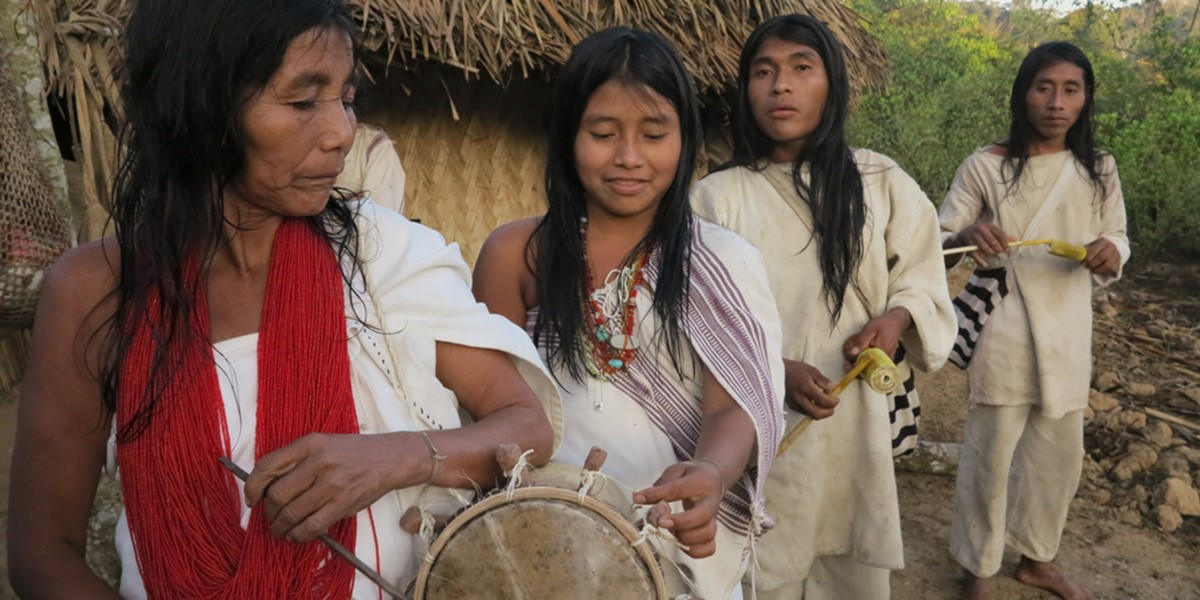Thursday, July 15, 2021
Making music with the Kogi: “Singing is a way for them to connect with the animals… a way to live peacefully among them without fear”
French producer Lion’s Drums talks to Russ Slater about recording the Kogi people of northern Colombia whose singing practices form an integral component of their profound relationship with nature


Register now to continue reading

Thanks for visiting the Songlines website, your guide to an extraordinary world of music and culture. Sign up for a free account now to enjoy:
- Free access to 2 subscriber-only articles and album reviews every month
- Unlimited access to our news and awards pages
- Our regular email newsletters

